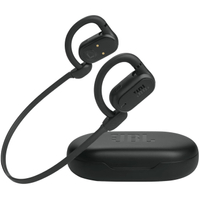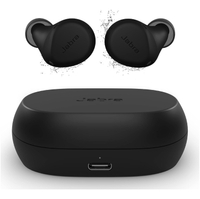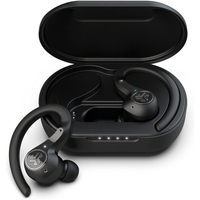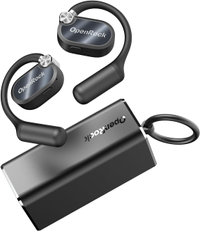We've tested the best sports headphones to help boost your motivation
Long lasting, durable wireless buds
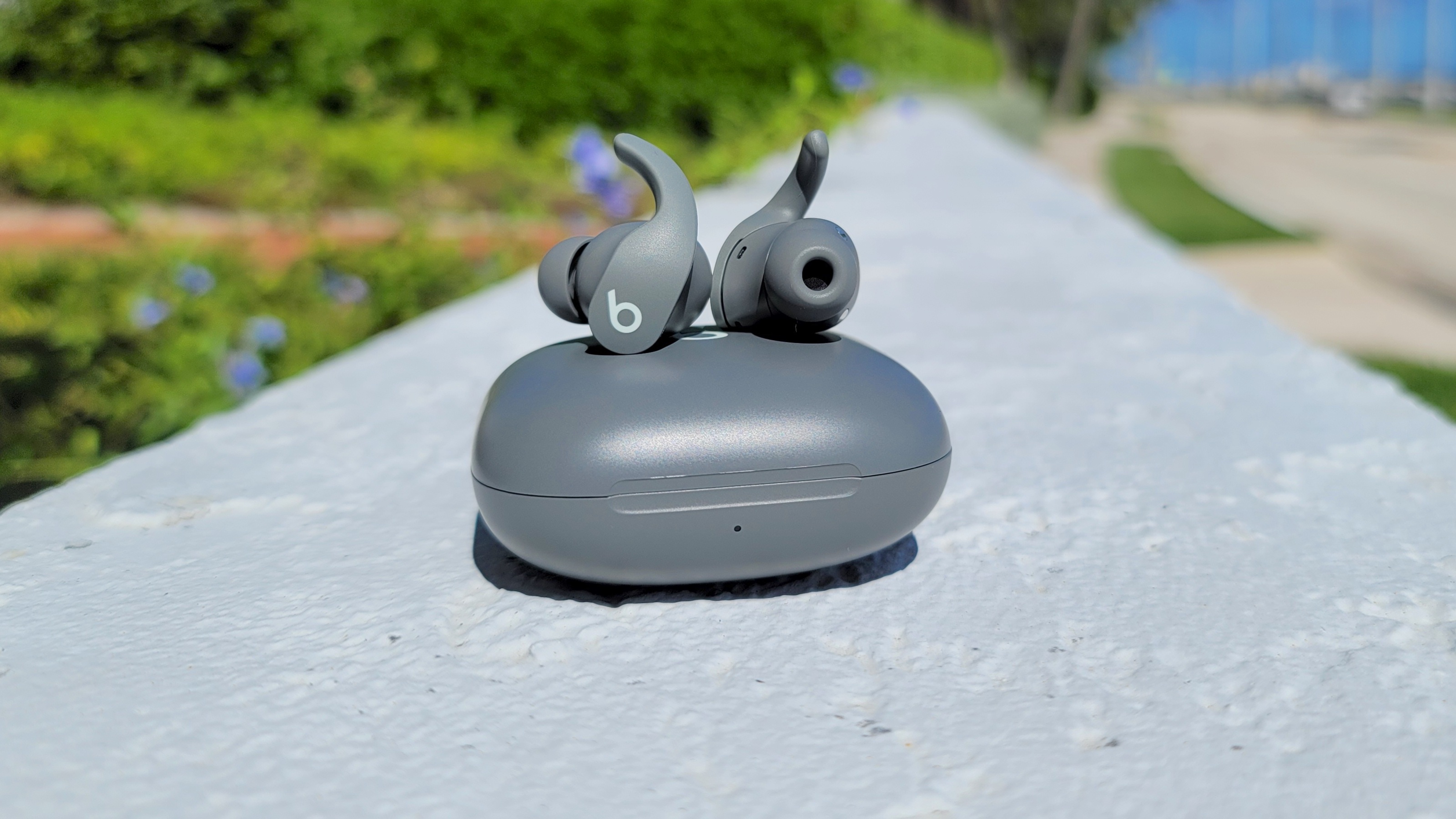
The best sports headphones are ideal if you do a lot of outdoor activities, like running, cycling, or hiking. They're designed to be durable, long-lasting, and still let you hear what's going on around you with a transparency mode.
Like many of the best workout headphones, these sports headphones help you keep motivated with your favorite music, audiobooks, or podcasts, and are comfortable to wear, even for extended periods.
But you can't really know what they're like until you get them in your ear, so we the best sports headphones to the test so you can find the right set for your training. We also checked the sound quality, battery life, and fit of each pair.
After testing each set, we felt that the Beats Fit Pro were the best sports headphones for most people, but we've also included Shokz headphones that are perfect for running, and several other alternatives to get you moving.
The best sport headphones you can buy right now
Why you can trust Tom's Guide
Best sports headphones overall
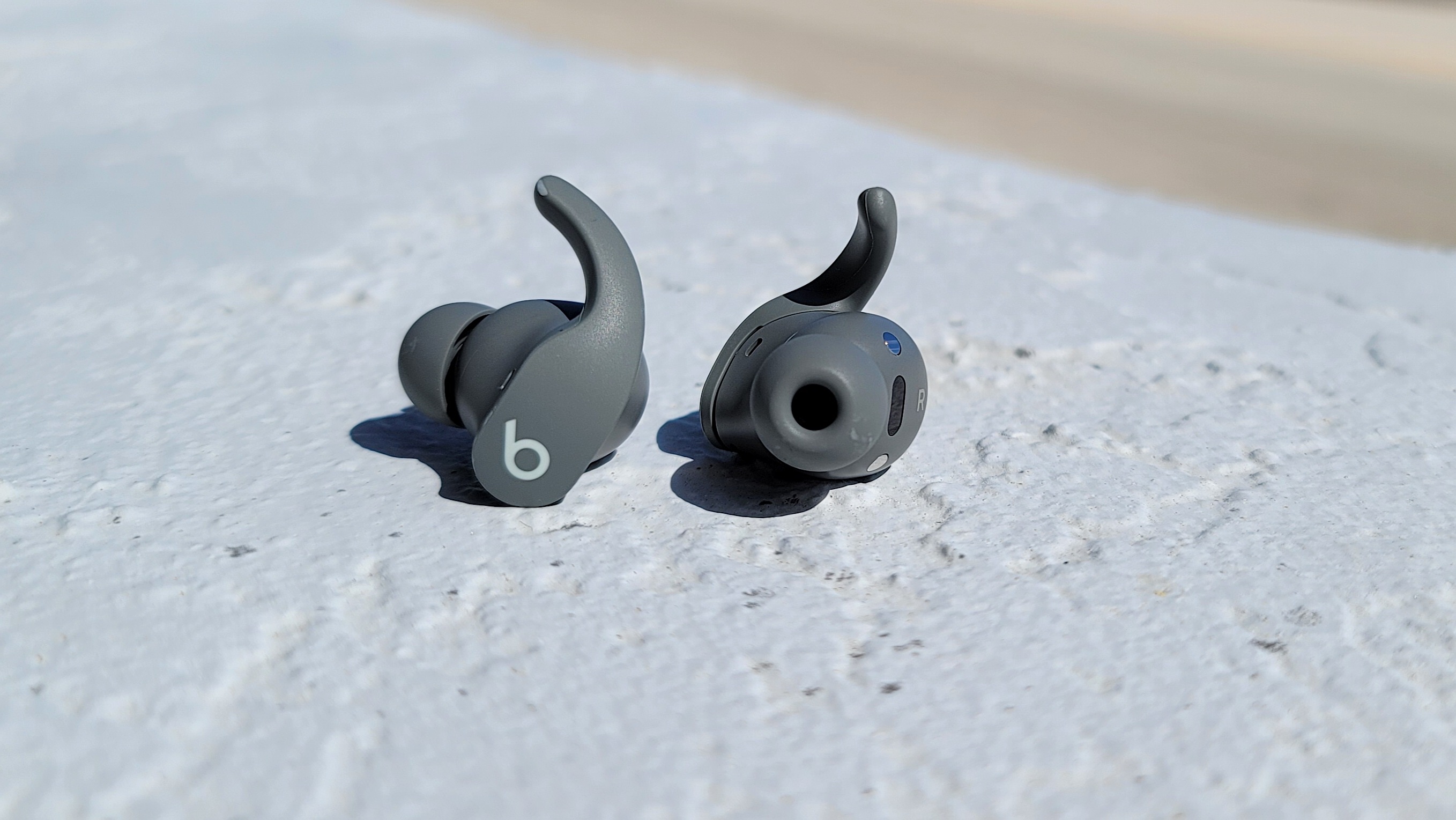
Specifications
Reasons to buy
Reasons to avoid
It's hard to find a better designed, more comfortable set of sports headphones than the Beats Fit Pro. These earbuds have small wings on each bud to keep them locked in place, making them ideal for working out.
However, that's not the only reason to like them. We were impressed by the noise cancelation, which easily blocked out unwanted distractions like background and traffic noise. And they have Apple's H1 chip, which means they integrate seamlessly with your other Apple devices, like your Mac.
And the chip helps power Siri's hands-free commands, and the Find My feature that allows you to recover misplaced buds. Of course, many of these features only work with Apple products, but you can still get a well-fitted, high-performing set even if you use an Android phone.
- Read our full Beats Fit Pro review
Best value sports headphones
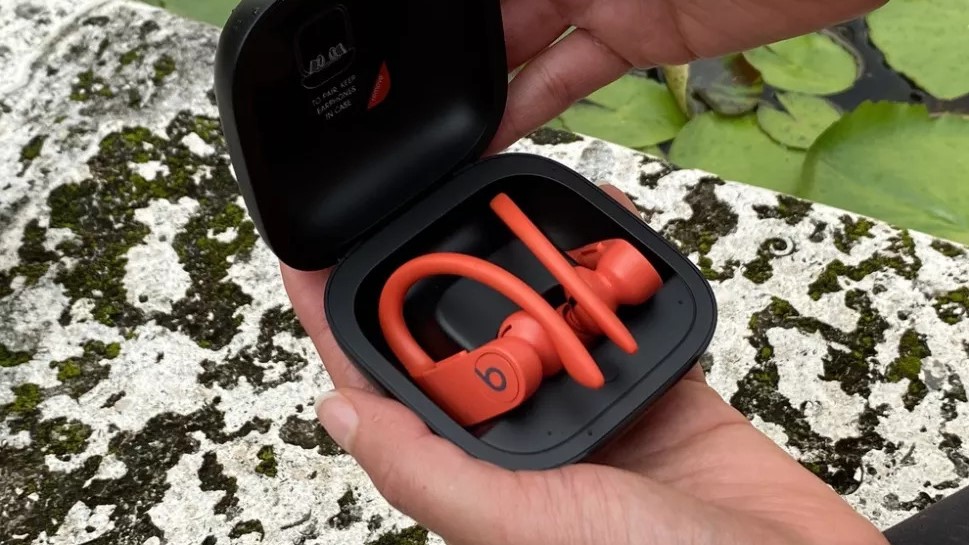
Specifications
Reasons to buy
Reasons to avoid
If you like the design of Apple's Beats brand, but prefer the security of over-ear hooks, then the Beats Powerbeats Pro may be the best sports headphones for you. As older headphones they're almost always in sales somewhere now, making them a good value pick despite the high MSRP.
These sweat-resistant buds have Apple's H1 chip, so they play well with other Apple devices. But, importantly, they also work with Android phones too, ideal if you're a fan of the Beats sound profile, although you don't get access to some iPhone-specific features like Siri and Spatial Audio.
However, whichever device you use, we found that the Powerbeats Pro have a well-balance audio output — gone is the super-heavy-bass approach found in older Beats sets. You get 24 hours of battery with the case, and 9 hours per bud.
- Read our full Beats Powerbeats Pro earbuds review
Best bone conduction sports headphones
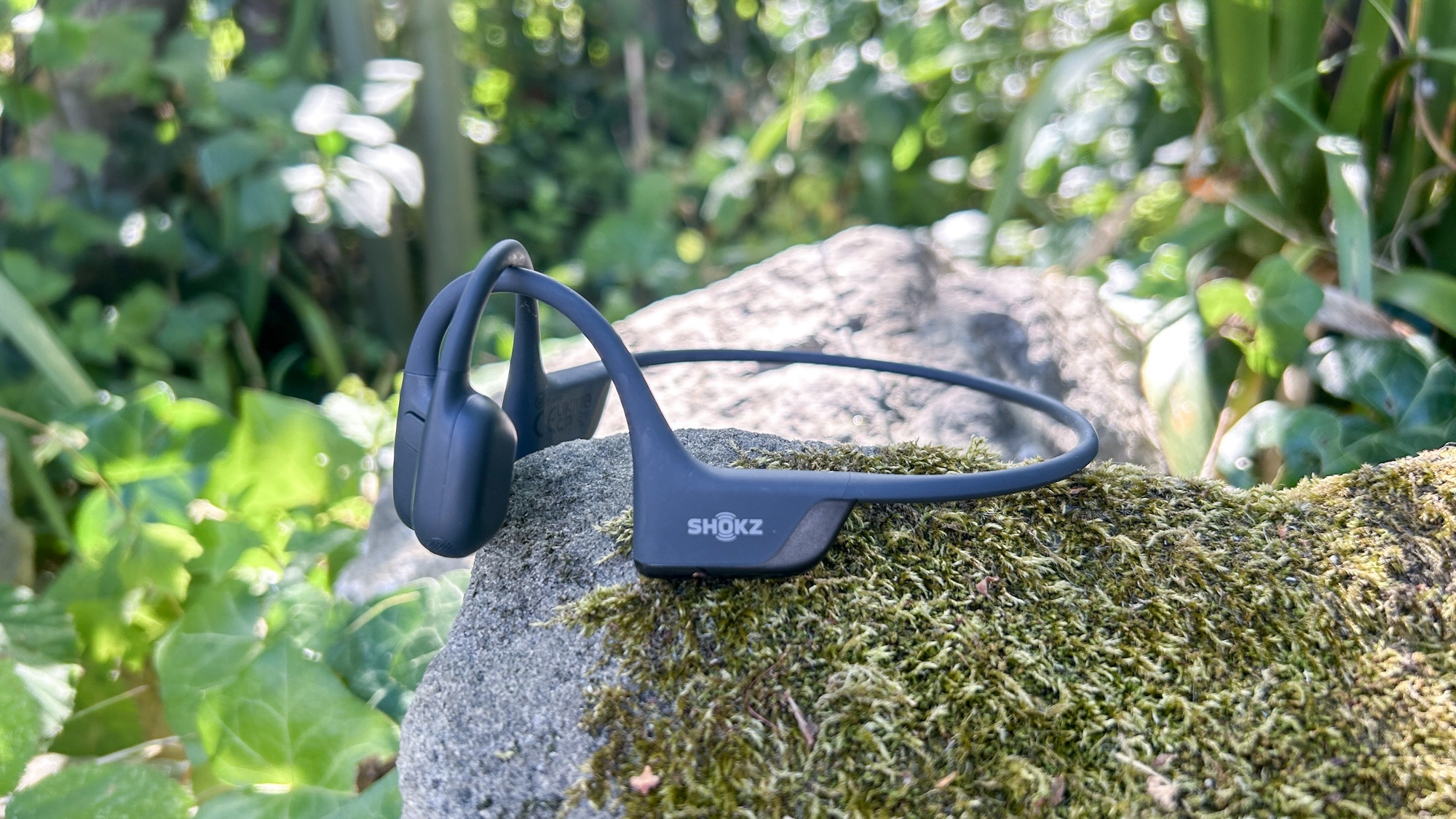
Specifications
Reasons to buy
Reasons to avoid
The Shokz OpenRun Pro 2 don't block your ear canal when you wear them, instead using vibrations delivered through your cheekbones to create sound. This means you stay aware of your surroundings during workouts, which is especially important for outdoor runs, hikes and cycles.
In general, even the best bone conduction headphones fall short on sound quality compared with in-ear buds, but the OpenRun Pro 2 are a cut above the competition because of the DualPitch technology they use. This significantly increases the power of the bass on the headphones in particular, and makes them clearer and more audible than other open headphones.
The headband style design is also comfortable and secure for any kind of workout, and while you can't adjust the fit the OpenRun Pro 2 headphones do come in two sizes, with the Mini version having a shorter band that sits closer to the head.
- Read our full Shokz OpenRun Pro 2 review
Best sports headphones for iPhone
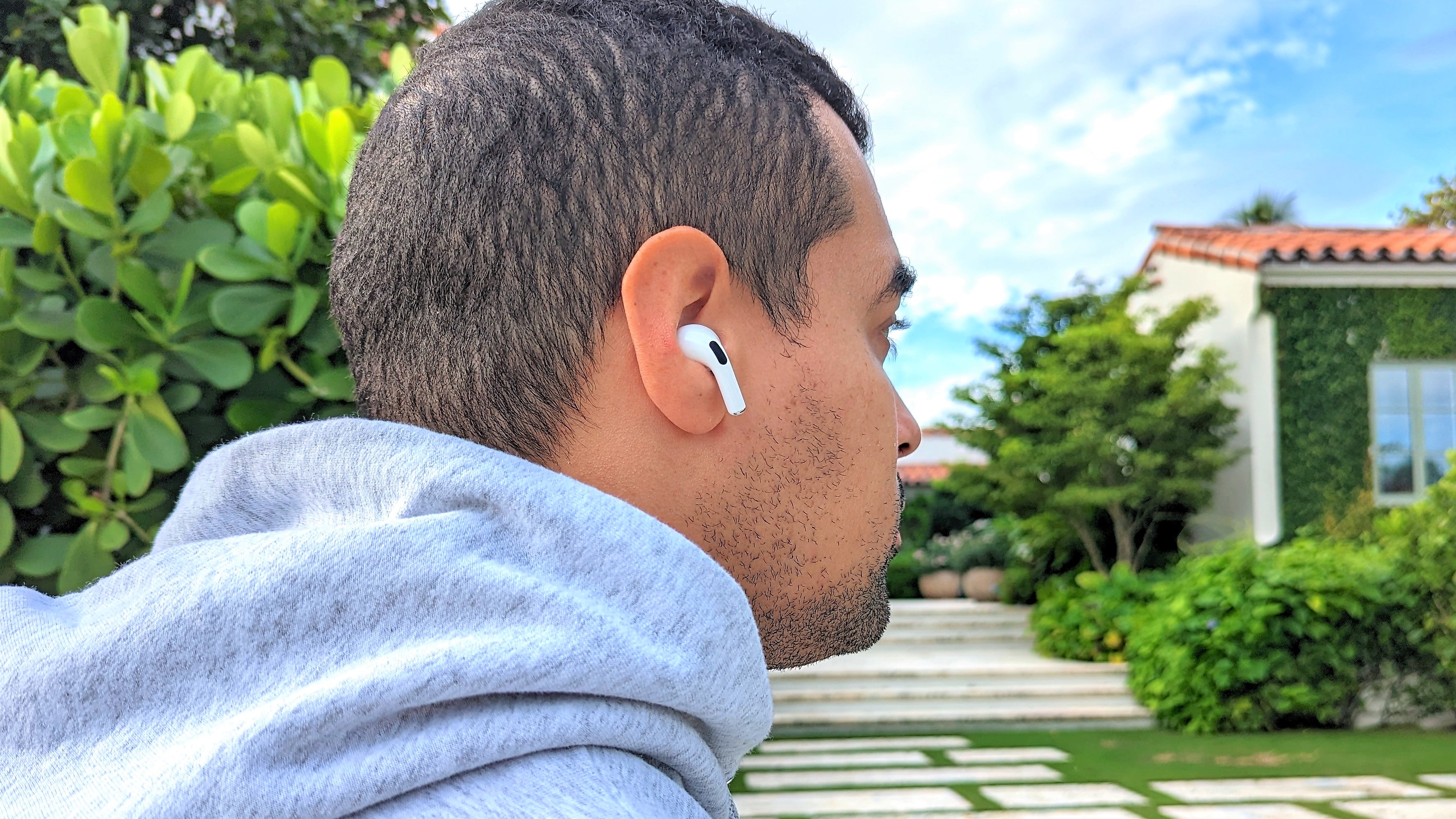
Specifications
Reasons to buy
Reasons to avoid
Apple doesn't aim the AirPods Pro 2 at exercise — they have the Beats Fit Pro and Powerbeats Pro for that — but the popular buds do come with many of the same features and that distinctive Apple-white stemmed design.
And just because they're not workout-themed, doesn't mean you can't use them for exercise too. In fact, we took the AirPods 2 out on a run and found that the combination of changeable ear tips and a dynamic Adaptive Transparency mode make them ideal for indoor and outdoor workouts.
As with Apple's original ANC buds, the AirPods Pro 2 are sweat and water resistance to IPX4, but slippage has been improved to feel more secure whether you're on a run or working out, plus Apple’s Ear Tip Fit Test helps achieve optimal fit
Battery life has been increased compared to the first-gen AirPods Pro, with 6 hours on the earbuds and 30 hours from the wireless charging case. And the noise cancelation is easily some of the best we've ever used.
- Read the full Apple AirPods Pro 2 review
Best sports headphones for durability
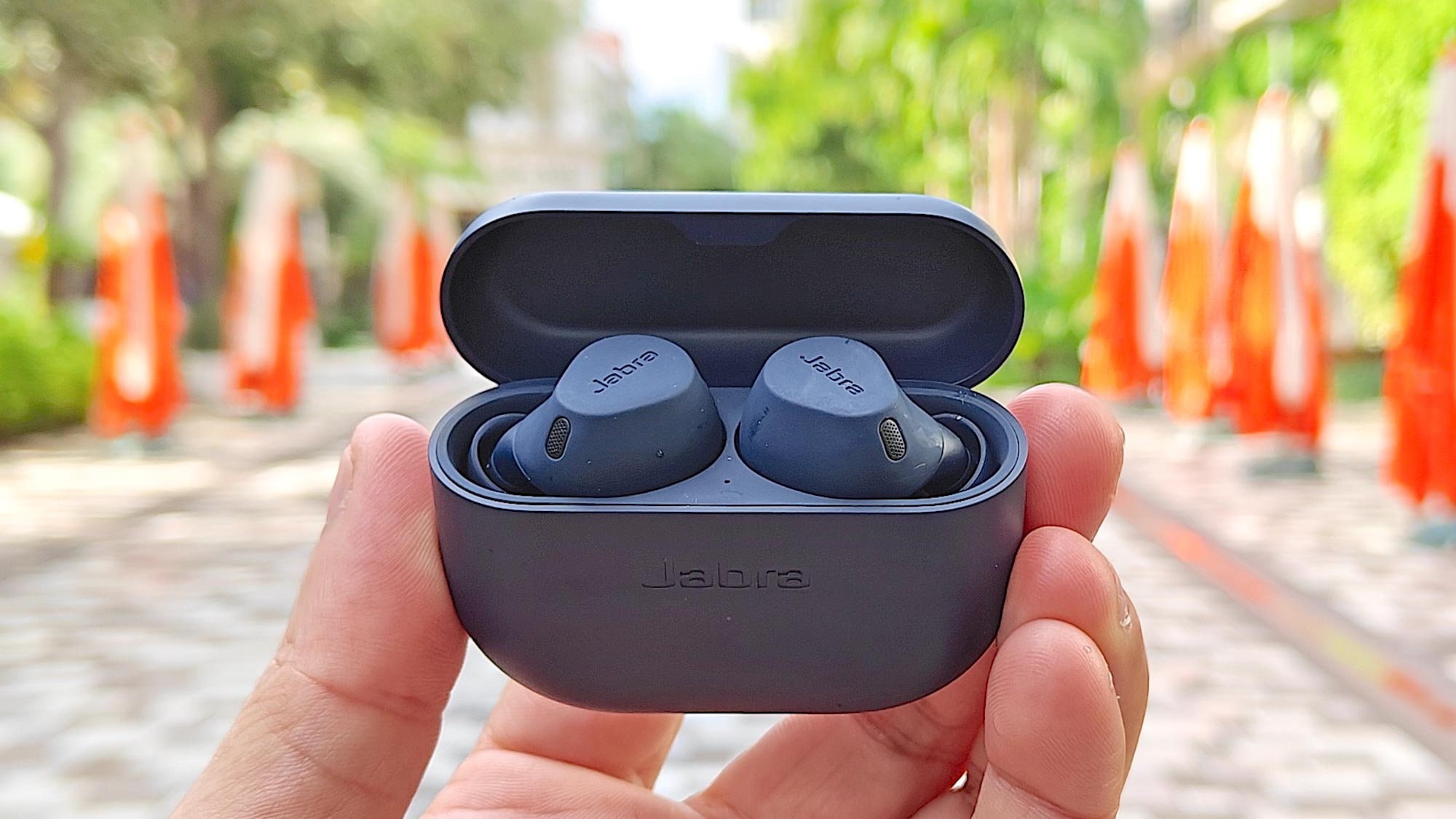
Specifications
Reasons to buy
Reasons to avoid
The Jabra Elite 8 Active are some of the most durable sports headphones we've tested. The materials don't chip or fade, the ShakeGrip ear tip design stops them from falling out on runs and high-intensity workouts, and they come with an IP68 rating for water resistance.
They have Jabra’s warm sound signature to jumpstart workouts the moment you press play, along with adaptive active noise cancellation (with a transparency mode), spatial audio, and some of the longest battery life available.
Noise cancelation does a fantastic job of reducing unwanted sounds, be it on runs or during video chats. The Elite 8 Active are one of the strongest pairs of workout headphones we've seen, and benefit from solid feature support across both iOS and Android devices.
- Read our full Jabra Elite 8 Active review
Best sports headphones under $100
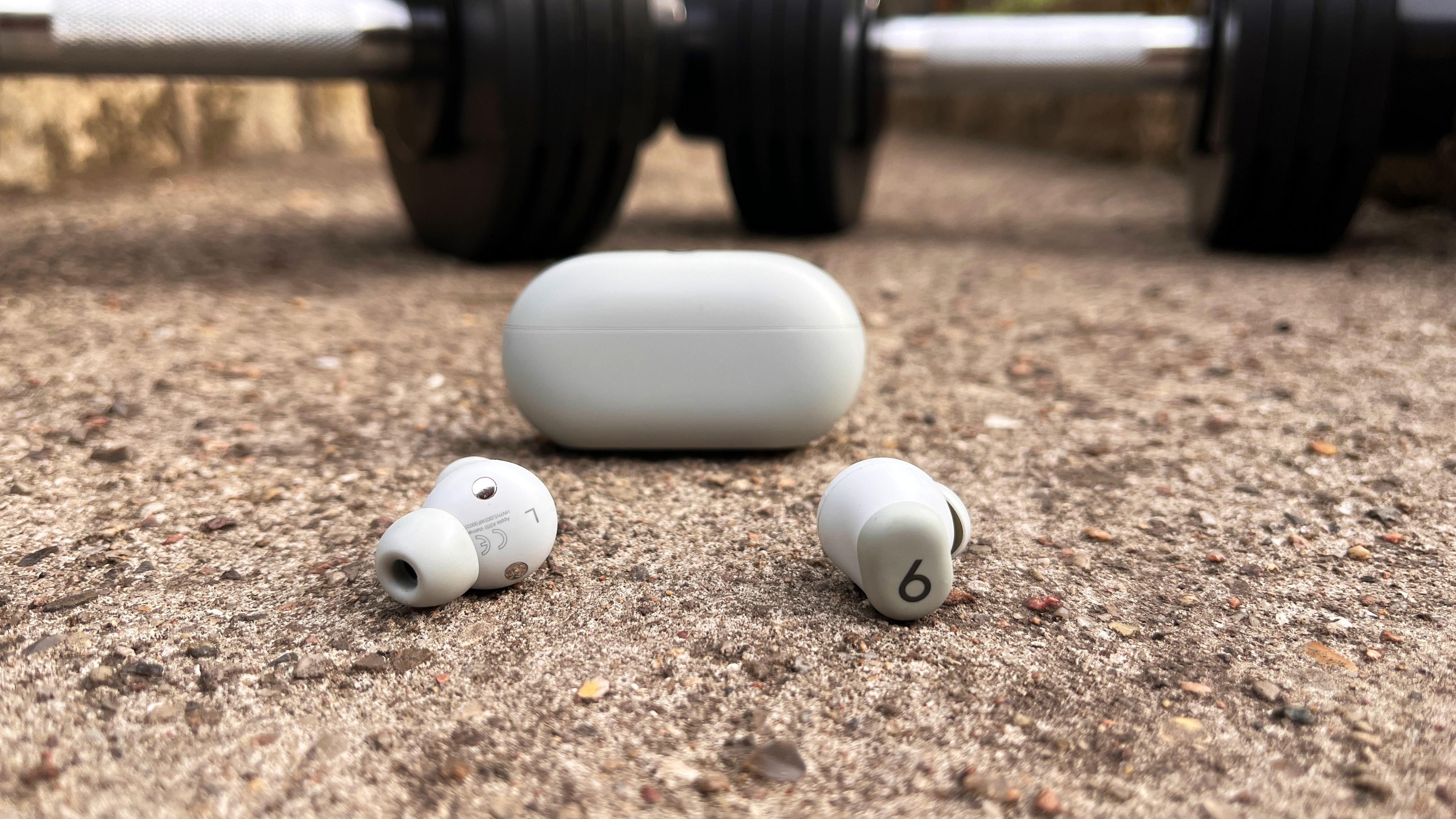
Specifications
Reasons to buy
Reasons to avoid
These excellent value sports headphones don't come with a charging case, noise cancellation or many other premium features, but the Beats Solo Buds excel at the basics; great sound quality and a comfortable, secure fit.
We wore them for several weeks, covering low-intensity walks, high-intensity workouts, strength training sessions, and for daily use. We even began to default to the Solo Buds over the, technically superior, Jabra Elite 8 Active.
Not in every situation — without noise cancellation, they're not ideal for busy environments like the gym, especially when listening to podcasts or audiobooks — but whenever we need a dependable pair we could throw in our bag.
While it's not ideal that the carry case doesn't have a battery (each bud lasts up to 18 hours, 15 hours in the real world before you need a top up) but it does mean that it's really convenient to keep with you, as the case only weighs 22g and 5.7g per bud.
They fit well too without any adjustments. Although we wore them for a variety of workouts and training sessions, it was only during walk in the middle of a heatwave we actually found they slipped a bit and needed readjustment.
- Read our Beats Solo Buds hands-on
Best sport headphones for swimming
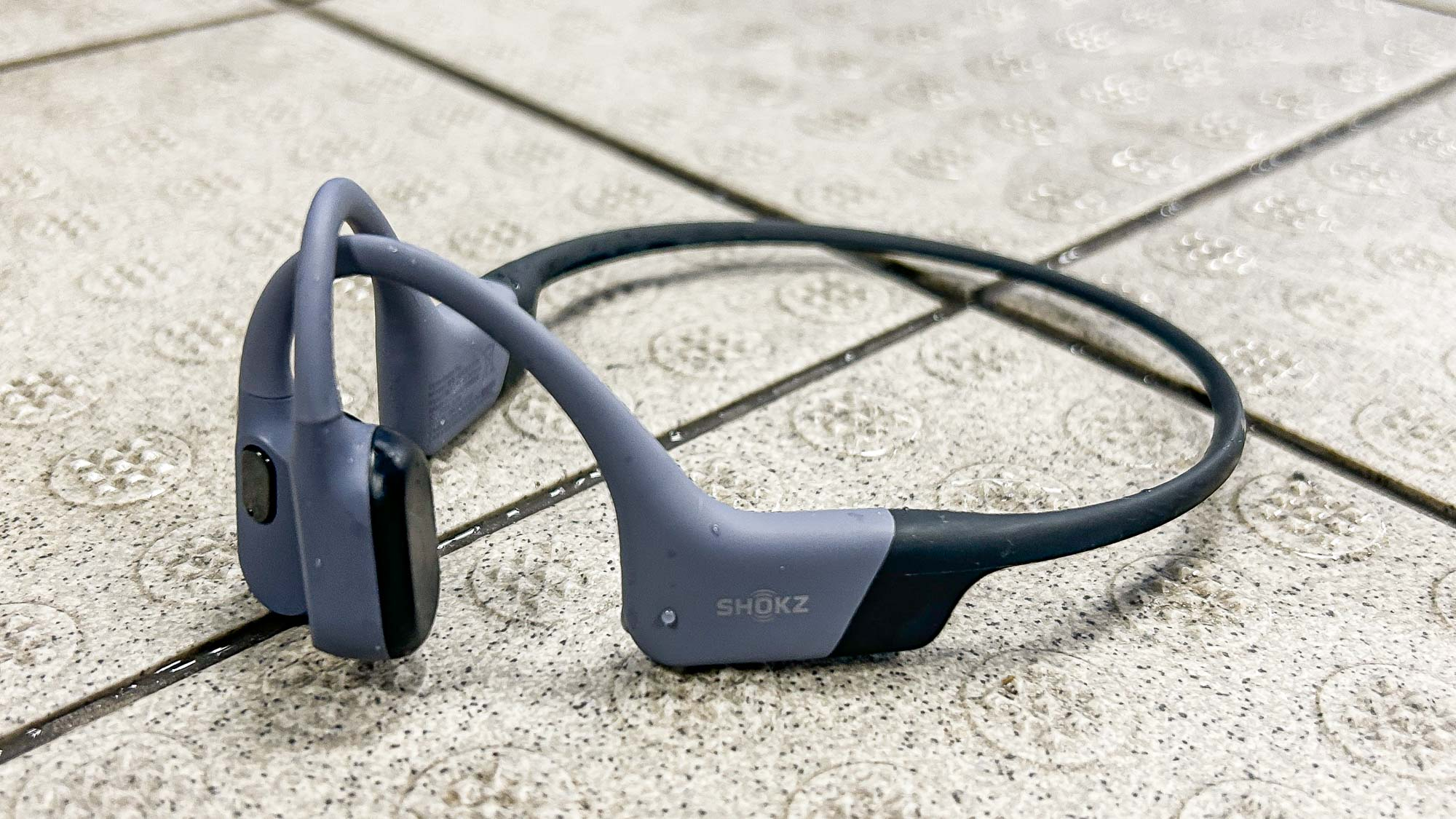
Specifications
Reasons to buy
Reasons to avoid
The Shokz OpenSwim Pro are easily some of the best swimming headphones around. These bone conduction headphones sit comfortably around your head, with vibrating pads on each cheek bone to generate sound and leave your ears open.
This is partly how the headphones got their IP68 water resistance rating, since there are no exposed electronics and the charging cable magnetically attaches to the right side pad. And the open-ear design means that you can still hear what's going on around you, including lifeguard whistles.
The headphones are equipped with Bluetooth, so you can stream your favorite music and podcasts from a nearby phone, but you also get 32GB of onboard music storage if you want to leave your phone in the locker as you swim.
You can't download music from your chosen streaming service, so you need to plug the OpenSwim Pro into a computer, then drag and drop files — a process we found a bit on the slow side and fiddly. Plus, how many people own MP3 files now?
But it's a useful addition if you're after a way to keep motivated in the water. We found the headphones fitted well even under swimming caps and goggles and were comfortable to wear for extended swims. And we were big fans of the Swimming sound mode, which boosts volume and clarity for voice-based audio.
- Read our full Shokz OpenSwim Pro review
How to choose the best sport headphones
There are a lot of great sports headphones out there, but you can make it easier to narrow down your options by keeping in mind a few important considerations to help you find the best sports headphones for your workouts.
Firstly, they need to be durable enough to handle all-weather outdoor exercise and sweaty indoor workouts. So you should aim for a set with an IP rating suitable for your training style, generally IPX4 or higher.
Plus, they need to stay securely in place while you move. Some come with over-ear hooks to stop them escaping, while others use balanced in-ear designs to achieve the same result. Which you choose will come down to preference.
None of us want to recharge our devices several times a day. Fortunately, many of the best sports headphones last up to 8 hours, with three or four full recharges in the case.
However, it's still important to factor battery life into your decision. If you plan on a multi-hour run or all-day hike, you'll want a set that can last the duration. Or if you're more into short, high-intensity workouts, this might be less of a problem.
How we test the best sport headphones
To make sure we test the best sports headphones thoroughly, we wear each set for at least two hours at a time to check for comfort, battery life and performance. We look to see how securely they fit during exercise and how they handle background noises, like oncoming traffic or chatter and machines at the gym.
We also download any companion apps and test to see how much you can customize the audio and overall experience. Plus, we check if the buds have on-ear buttons and whether these are easy to use, even when you're sweaty or moving.
And even though you'll be using these during sports and exercise, we also test each pair for audio quality, listening to a range of genres, music styles, podcasts, and phone calls for volume, clarity, and fullness of sound.
Also tested
We test a lot of sports headphones, but not all of them will make our roundup. That doesn't make them bad options though, so if you're after more choices, here are some that didn't quite make the cut.
JBL SoundGear Sense
If you're looking for a set of headphones you can use for outdoor workouts, the open-ear design on the JBL SoundGear Sense make them a good option. However, in noisy environments, we found that the audio would get drowned out. But they are comfortable and durable and good for indoor exercise.
Jabra Elite 7 Active
Before Jabra made an exit from the consumer market with the Elite 8 Active, the 7 Active were some of the best sports headphones around. They're two generations old now, so are harder to find, but have similar ANC performance, great audio, and an incredibly comfortable design.
Read our full Jabra Elite 7 Active review
JLab Epic Air Sport ANC (2nd Gen)
Before the Beats Solo Buds came along, these were our top sub-$100 sports headphones, thanks to the ear hook-based design to keep them in place, the impressive 70-hour battery life, good audio, and support for wireless charging.
Read our full JLab Epic Air Sport ANC (2nd Gen) review
OpenRock X
On paper, these open-ear sports headphones seem ideal. They feel premium (with a price tag to match) and are comfortable to wear for extended periods (unless you use glasses). But we found the sound quality wasn't up to scratch for the price, and the design allows too much wind noise to disrupt your audio.
Read our full OpenRock X review
FAQs
What headphones do professional athletes use?
During competitive events and races, athletes don't typically wear headphones. However, like many other people, athletes need to train and use music to keep motivated during their workouts.
However, there's no one-size-fits-all answer here, as its often down to personal preference. That said, runners will often default to bone conduction headphones so they can keep aware of their surroundings.
In fact, England Athletics even notes that: "Bone conduction sports headphones are the only headphones that are approved for use in all road races under the UK Athletics Rules of Competition.
"The Rules are clear that “in ear” headphones cannot be used in events where roads are open to traffic." The organization partners with Shokz, but you can use any bone conduction headphones to meet the requirements.
Sign up to get the BEST of Tom's Guide direct to your inbox.
Get instant access to breaking news, the hottest reviews, great deals and helpful tips.

Nick Harris-Fry is an experienced health and fitness journalist, writing professionally since 2012. He spent nine years working on the Coach magazine and website before moving to the fitness team at Tom’s Guide in 2024. Nick is a keen runner and also the founder of YouTube channel The Run Testers, which specialises in reviewing running shoes, watches, headphones and other gear.
Nick ran his first marathon in 2016 after six weeks of training for a magazine feature and subsequently became obsessed with the sport. He now has PBs of 2hr 27min for the marathon and 15min 30sec for 5K, and has run 13 marathons in total, as well as a 50-mile ultramarathon. Nick is also a qualified Run Leader in the UK.
Nick is an established expert in the health and fitness area and along with writing for many publications, including Live Science, Expert Reviews, Wareable, Coach and Get Sweat Go, he has been quoted on The Guardian and The Independent.
- James FrewBuying Guide Editor
